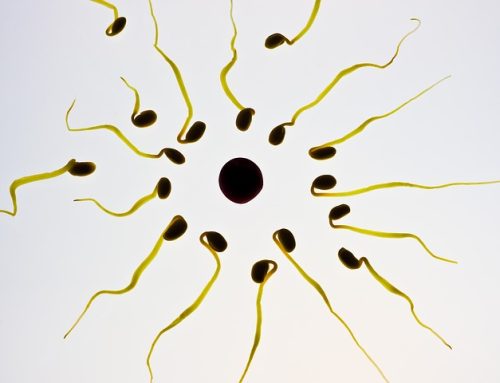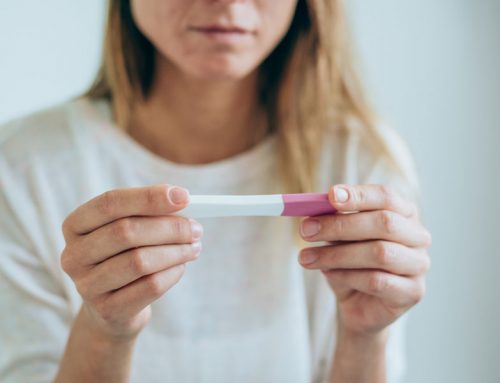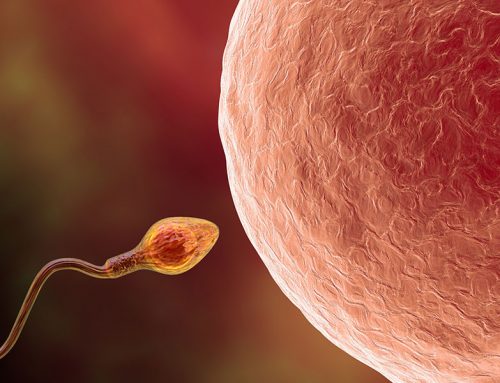Coenzyme Q10 pre-treatment of women scheduled for IVF/ICSI infertility treatment can improve the clinical pregnancy rate and can reduce the miscarriage rate. Evidence from a recent systematic review suggests that CoQ10 pretreatment is an effective intervention. CoQ10 supplementation improves IVF/ICSI outcomes for women with diminished ovarian reserve. The review comprised six randomized controlled trials enrolling altogether 1529 study participants [Lin 2024].

For some women and particularly for women as they reach the age of 35 years and beyond, achieving a pregnancy is not always easy. Pretreatment for two to three months with 2 times 100 mg of Coenzyme Q10 can improve pregnancy rate and reduce the risk of miscarriage.
One estimate from 2021 is that approximately one in eight women of child-bearing age in the US is affected by infertility issues. In China, a 2018 report estimates that the number of women troubled by infertility issues could be as high as one in four. As the women increase in age, the risk of infertility increases. One of the common causes of female infertility is diminished ovarian reserve [Lin 2024].
Diminished ovarian reserve is the medical term for a decline in the quantity and quality of a woman’s oocytes. Oocytes are the cells that develop into eggs to be fertilized. Women diagnosed with diminished ovarian reserve have poor reproductive outcomes during in-vitro fertilization (IVF). They have a lower probability of pregnancy. Thus, diminished ovarian reserve is one of the challenges that IVF specialists have to deal with [Lin 2024].
Coenzyme Q10 and IVF/ICSI
First, a definition of terms. The studies included in the 2024 systematic review were IVF/ICSI studies. IVF – in-vitro fertilization – is a technique of fertilization of the woman’s eggs in the laboratory. IVF involves the removing of the woman’s eggs (known as ovum in the singular and as ova in the plural) from the woman’s ovaries. The man’s sperm is then used to fertilize the woman’s eggs in a culture medium.
ICSI – intracytoplasmic sperm injection – is a female infertility IVF treatment. ICSI is a method of injecting live sperm into a woman’s eggs in the laboratory. The purpose of the ICSI procedure is to achieve a fertilized egg, which is called an embryo.
Of the 1529 women with diminished ovarian reserve who should receive IVF/ICSI treatment, 761 were randomly assigned to the CoQ10 pretreatment group, and 768 were randomly assigned to the control group. All six studies were conducted in China. The study results were published between 2017 and 2023 [Lin 2024].
The duration of the CoQ10 pretreatment before receiving ovarian stimulation was three months in five studies and two months in one study [Lin 2024].
For reasons unknown, Lin et al did not report the average daily dosage of Coenzyme Q10 in the six studies. However, in a 2018 Italian study, CoQ10 pretreatment before ovarian stimulation had beneficial outcomes in IVF/ICSI in infertile women. In that study, researchers administered 2 times 100 mg Coenzyme Q10 daily for 30 days to the women [Giannubilo 2018].
CoQ10 Pretreatment Study Outcomes
The analysis of the pooled data in the Lin meta-analysis revealed that the administration of Coenzyme Q10 prior to an IVF/ICSI cycle yielded the following findings [Lin 2024]:
- an increase in the clinical pregnancy rate
- an increase in the number of oocytes retrieved
- an increase in the number of optimal embryos
- a decrease in the cycle cancellation rate
- a reduction in the miscarriage rate
The odds ratio for the clinical pregnancy rate was 1.84, indicating an almost double better chance for pregnancy. The odds ratio for the miscarriage rate was 0.38, indicating a risk of miscarriage reduced by more than half. Both outcomes were statistically significant [Lin 2024].
Conclusion: CoQ10 Pretreatment Helps IVF/ICSI Outcomes
CoQ10 pretreatment has positive effects that improve the pregnancy outcomes in women with diminished ovarian reserve: increased pregnancy rate and decreased miscarriage rate [Lin 2024].
The biological mechanisms by which CoQ10 supplementation improves women’s ovarian environment and oocyte quality may be by enhancing mitochondrial function and decreasing oxidative stress [Lin 2024].
Pretreatment of women with diminished ovarian reserve with 2 times 100 mg Coenzyme Q10 daily for two to three months should improve pregnancy and miscarriage outcomes. For best results, the women should take the CoQ10 supplements together with meals containing some fat.
CoQ10 supplements are affordable and well-tolerated. Their clinical efficacy depends upon the extent of absorption and bioavailability. Accordingly, it is important to purchase a good-quality CoQ10 supplement with documented absorption [Lopez-Lluch 2019]. Anything else would be a waste of money.
Sources
Giannubilo SR, Orlando P, Silvestri S, Cirilli I, Marcheggiani F, Ciavattini A, Tiano L. CoQ10 supplementation in patients undergoing IVF-ET: the relationship with follicular fluid content and oocyte maturity. Antioxidants (Basel). 2018 Oct 13;7(10):141.
Lin G, Li X, Jin Yie SL, Xu L. Clinical evidence of coenzyme Q10 pretreatment for women with diminished ovarian reserve undergoing IVF/ICSI: a systematic review and meta-analysis. Ann Med. 2024 Dec;56(1):2389469.
López-Lluch G, Del Pozo-Cruz J, Sánchez-Cuesta A, Cortés-Rodríguez AB, Navas P. Bioavailability of coenzyme Q10 supplements depends on carrier lipids and solubilization. Nutrition. 2019 Jan;57:133-140.
The information presented in this review article is not intended as medical advice. It should not be used as such.









Leave A Comment